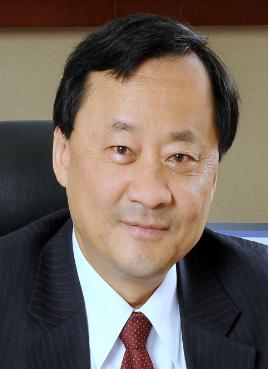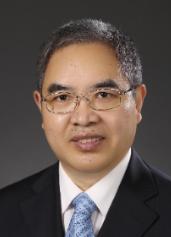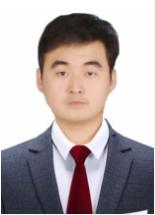Speakers of CWCBD 2026

Prof. Benjamin W. Wah
AAAS Fellow, ACM Fellow, IEEE Fellow
The Chinese University of Hong Kong, China
Biography: Benjamin W. Wah is a Research Professor at the Chinese University of Hong Kong and Franklin W. Woeltge Emeritus Professor of Electrical and Computer Engineering at the University of Illinois, Urbana-Champaign. Previously, he served as the Provost and Wei Lun Professor of Computer Science and Engineering of the Chinese University of Hong Kong, the Director of the Advanced Digital Sciences Center in Singapore, as well as the Franklin W. Woeltge Endowed Professor of Electrical and Computer Engineering and Professor of the Coordinated Science Laboratory of the University of Illinois, Urbana-Champaign, USA. Wah received his Ph.D. degree in computer science from the University of California, Berkeley, CA, in 1979. He has received many awards for his research and service contributions, including the IEEE CS Technical Achievement Award (1998), the IEEE Millennium Medal (2000), the Society for Design and Process Science Raymond T. Yeh Lifetime Achievement Award (2003), the IEEE-CS W. Wallace-McDowell Award (2006), the Pan Wen-yuan Outstanding Research Award (2006), the IEEE-CS Richard E. Merwin Award (2007), the IEEE-CS Technical Committee on Distributed Processing Outstanding Achievement Award (2007), the IEEE-CS Tsutomu Kanai Award (2009), the Distinguished Alumni Award in Computer Science of the University of California, Berkeley (2011), and the Bronze Bauhinia Star of the Hong Kong Self Administrative Region (2021). Wah's current research interests are nonlinear search and optimization, multimedia signal processing, and artificial intelligence.
Wah co-founded the IEEE Transactions on Knowledge and Data Engineering in 1988 and served as its Editor-in-Chief between 1993 and 1996. Currently, he is the Editor-in-Chief of Computers and Education: Artificial Intelligence and the Honorary Editor-in-Chief of Knowledge and Information Systems. He also serves on the editorial boards of Information Sciences, International Journal on Artificial Intelligence Tools, and World Wide Web. In addition, Wah served the IEEE Computer Society in various capacities, including Vice President for Publications (1998-1999) and President (2001). He is a Fellow of the AAAS and ACM, and a Life Fellow of the IEEE.

Prof. Pingyi Fan
Director of Open-Source Data Recognition Innovation Center
Tsinghua University, China
Biography: Professor Fan is a tenured professor at the Department of Electronic Engineering of Tsinghua University and the director of Open-Source Data Recognition Innovation Center. He is a member of the US National Academy of Artificial Intelligence (US-NAAI), co-chair of the academic committee of the NAAI Asia Research Institute, and a fellow of the Institution of Engineering and Technology (IET). He obtained his Ph.D. from the Department of Electronic Engineering, Tsinghua University in 1994. From 1997 to 1999, he was a visiting scholar at the Hong Kong University of Science and Technology and the University of Delaware in the United States. He has also visited many universities and research institutes in the United States, Europe, Japan, Hong Kong, and Singapore on multiple occasions. His recent main research directions include 6G wireless communication networks and machine learning, semantic information theory and generalized information theory, big data processing theory, and intelligent network and system detection.
He has presided over national 973 and 863 projects, mobile special projects, key R & D plans, national natural science funds, and international cooperation projects and subjects. He has published more than 600 academic papers (ORCID), among which more than 170 have been published in IEEE journals and more than 10 are ESI highly cited papers. He has applied for more than 40 national patents and 7 international patents, and has written 5 academic works. He has won 10 IEEE international conference best paper awards, including IEEE ICCCS 2024, ICC 2020, and Globecom 2014, the IEEE TAOS 2020 best paper award of the year, the 2024 high impact paper award of the Chinese Journal of Electronics (CJE), the IEEE TWC (2009) outstanding journal editorial board award. He also received the AEIC (2023) Most Popular Scholar Award, the 2023 Natural Science Second Prize from the China Communications Society, the DCASE2024 Challenge Judges' Award and the NAAI 2025 AI Exploration Award.
He serves as an editorial board member for several journals, including IEEE and MDPI, such as IEEE Transactions on Cognitive Communications and Networking (TCCN) (2024-2026), the editorial board member of the Open Journal of Mathematical Sciences, and the editorial board member of IAES International Journal of Artificial Intelligence (IJAI) (2023-2026). He is also the vice chairman of the Information Theory Branch of the Chinese Institute of Electronics, the co-chair of the China 6G-ANA TG4, and the chairman of the IEEE ChinaSIP Network and Communication Technology Committee. He has served as the conference chair, technical committee chair, or delivered keynote speeches at international conferences more than 40 times.

Assoc. Prof. Congduan Li
Sun Yat-sen University, China
Biography: Dr. Li Congduan, Associate Professor and Doctoral Supervisor at Sun Yat sen University with the Hundred Talents Program, Young Rising Star in Information Theory at the China Electronics Society, Overseas High level Talent in Shenzhen, Senior Member of IEEE, and Member of the China Internet of Things Youth Technical Committee. His research focuses on communication networks and artificial intelligence technology. More than 70 academic papers have been published on related achievements, including over 20 top SCI journals as the first/corresponding author, and over ten Chinese invention patents have been authorized. In the past 5 years, he has participated many projects as PI, such as the National Natural Science Foundation, the National Key R&D Program, key project of basic and applied basic research in Guangdong Province, key fund for scientific and technological innovation in Shenzhen.
